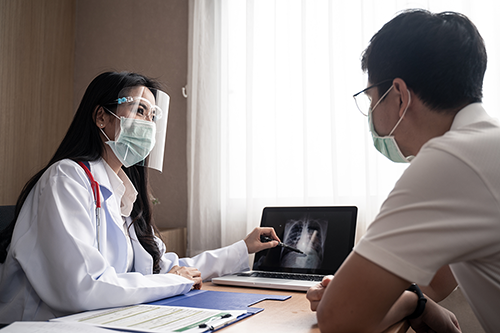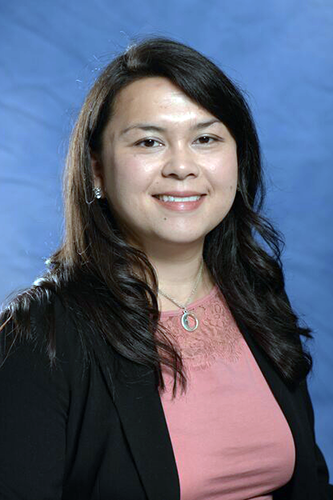COVID-19 has changed how—and how openly—we talk about health. This includes discussions that would have once seemed odd or intrusive: Is everyone in the car fully vaccinated? When did you get your second shot? Which shot was it? In fact, experts say the pandemic’s effect on how we communicate about disease may reach beyond the current crisis.
Charee Thompson, professor of communication, studies health communication between friends, family, and healthcare providers. She said the COVID-19 pandemic has ushered in unique dynamics within some of these relationships as people are talking about their health like they never have before.

“I also think that, from a communication perspective, COVID-19 has heightened or created turbulence in relationships in that we've been forced to have difficult conversations,” Thompson said.
Conversations that were once considered invasive are now acceptable: questions of with whom a friend or family member has socialized, vaccination status, the date of a person’s latest test. Some of these issues have been exacerbated by politics and misgivings about vaccinations, Thompson pointed out. Discussions about health can damage a friendship or relationship with someone who has different beliefs.
Charee Thompson (Department of Communication)
“Our experiences with COVID-19 are not disconnected from the larger, cultural, political context,” Thompson said.
Even among those whose relationships haven’t been strained, the nature of conversation about health has changed dramatically. Conversations about testing and vaccinations, which may have before been limited to doctor’s offices and dining tables, are now sometimes being held in public spaces, between virtual strangers.

Once the pandemic ends, Thompson believes, people will continue to have conversations such as these.
“I hope this reduces the stigma for testing of various diseases. Could you be this open and non-judgmental and not stigmatizing about testing for STDs?” She said. “I would love if normalizing testing as a public health measure to keep people safe was more normalized and less stigmatized of various things.”
Thompson said that she also hopes that future public health messaging can create a space for dialogue while at the same time encouraging people to take appropriate safety measures. With viruses like COVID-19, she added, it’s also important to acknowledge any uncertainty in some of the science.
“People may dislike hearing uncertainty, but it may foster mistrust if public officials are not honest,” she said. “To help people manage the uncertainty, it is important to provide everyday means of managing uncertainty—things people can do to feel a sense of control and predictability in their local worlds, like getting vaccinated, social distancing, and wearing masks. It’s also important to provide information resources, should people seek information, and to encourage people to stay connected.”
Falsehoods about COVID-19—intentional or not—have become an issue for those fighting COVID-19 because the inconsistencies can cause confusion and mistrust, Thompson said. Most people will seek out sources and information that confirm their existing beliefs.
“We know from research that if you want people to engage in certain health behaviors or have certain beliefs about health then we have to have consistent messaging about the seriousness of a health issue,” Thompson said. “We have to help people feel like they can engage in a behavior that will protect them, that it's a good thing to do, and that other people are doing it. We need to reduce the barriers.
Editor's note: For more stories about how experts, students, and alumni are learning and looking ahead during this challenging time, visit the Moving forward from COVID-19 page.